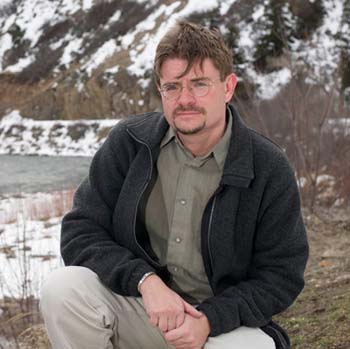Texas oilman T. Boone Pickens is a geologist by training, but lately he’s been testing the wind. The real wind, and the political winds.
Pickens looks at the eastern edge of the Rockies and sees a massive generator – a wind corridor that could host thousands of wind turbines and satisfy a big chunk of our nation’s energy needs.
When he tests the winds in Washington, he sees politicians that won’t budge without a big show of public support. So the Texas billionaire is bankrolling a campaign for wind power, and he’s crisscrossing the Great Plains to drum up support.
Pickens calls it The Pickens Plan: an ambitious proposal to decrease our foreign oil dependence by more than a third. He wants to see wind turbines spinning over along the Rockies eastern edge, from Texas to Canada. The $1 trillion investment (plus a couple billion for a new network of transmission lines), which he likens to President Eisenhower’s interstate highway system initiative, would be a bargain in the long run, he says.
His plan calls for the country to use wind to power at least 20 percent of our electricity needs, then switch our natural gas reserves from our power plants to our cars and trucks. (Pickens himself drives a natural gas-fueled Honda Civic GX.)
One of the richest men in America, Pickens is funding his $58 million energy campaign himself. He is trying to get 1 million people to sign up on his Web site, pickensplan.org, and he’s been trumpeting the plan at “T. Boone Town Halls,” from Lamar, Colo., last week, to Lincoln, Neb., Rapid City, S.D., and Fargo, N.D., in a few days.
“Boone is changing the world,” says fellow Texas billionaire Sam Wyly, who owns Green Mountain Energy, which buys wind power.
Wyly introduced Pickens when he appeared recently at the Aspen Institute, whose well-heeled crowd, including Republican Gov. Mark Sanford, of South Carolina, was a little different than the folks that usually show up at his town halls. Earlier in the day, he pitched his plan to Republican presidential candidate John McCain, who had spoken in Aspen the day before. He planned to meet with his Democratic rival, Barack Obama, in Reno, Nev., on Sunday.
“I think this is so important to the country that if he wanted me to meet at midnight Sunday night I’d be there,” he said.
Pickens calls the U.S. “the Saudi Arabia of wind power,” Rocky Mountain states like Colorado, Wyoming, and Montana, along with their Great Plains neighbors, are among the 15 most blustery states in the country. He wants to harness that power to get the country to reduce its dependency from the other Saudi Arabia. The U.S. is dependent on foreign countries for 70 percent of its oil, he says, and at a price tag of $700 billion a year, “it’s the largest transfer of wealth in the history of mankind, and it’s happening very, very fast.”
“I applaud his leadership on wind power,” says Amory Lovins, co-founder and chief scientist of the Rocky Mountain Institute, based in Old Snowmass, Colo., a longtime proponent of renewable energy. “The U.S., with Texas in the lead, added more in wind power than the world added in coal power last year.”
Pickens’ plan has been well-received by lots of environmentalists for its role in boosting wind power. (He’s a fan of solar, too.) His ideas aren’t exactly green, though. The thrust of his plan is about reducing foreign oil dependency, not greenhouse gases. Although he admits it won’t do much to increase our supplies, Pickens favors off-shore drilling and opening up the Arctic National Wildlife Refuge, something most environmentalists don’t get behind. Not too many environmentalists are on board with his embrace of nuclear power, either, or of his support for non-traditional fuels like oil shale and oil sands.
When Al Gore announced his challenge to switch to renewables completely in 10 years to combat global warming, Pickens begged to differ. He issued a statement criticizing Gore’s plan for doing nothing to combat foreign oil dependence.
“It is clear that he and I have two very different objectives and our plans should be viewed with that in mind,” Pickens said in a statement.
Some also criticize his plan for being self-serving. His company Mesa Power is planning the world’s largest wind farm in the Texas Panhandle.
Pickens, though, is among those who believe that world oil supplies have peaked, and that what’s left is only getting pricier at a time when our reliance on foreign oil is growing. He looks at wind power as not only a way to wean the country off foreign oil, but to boost rural America and restore the country’s technological leadership.
“We need to get out in front of the world instead of dragging behind the world,” he said.

